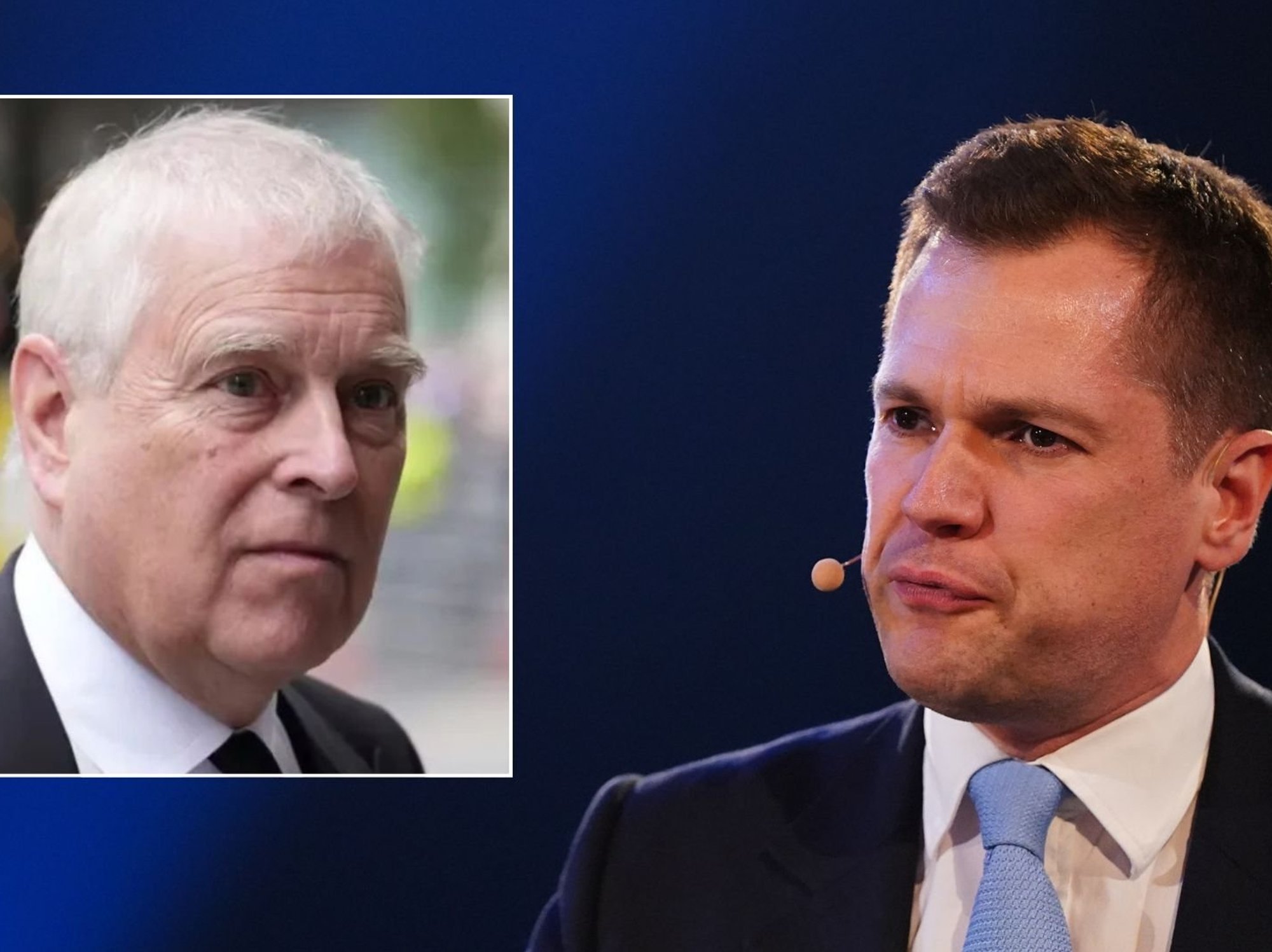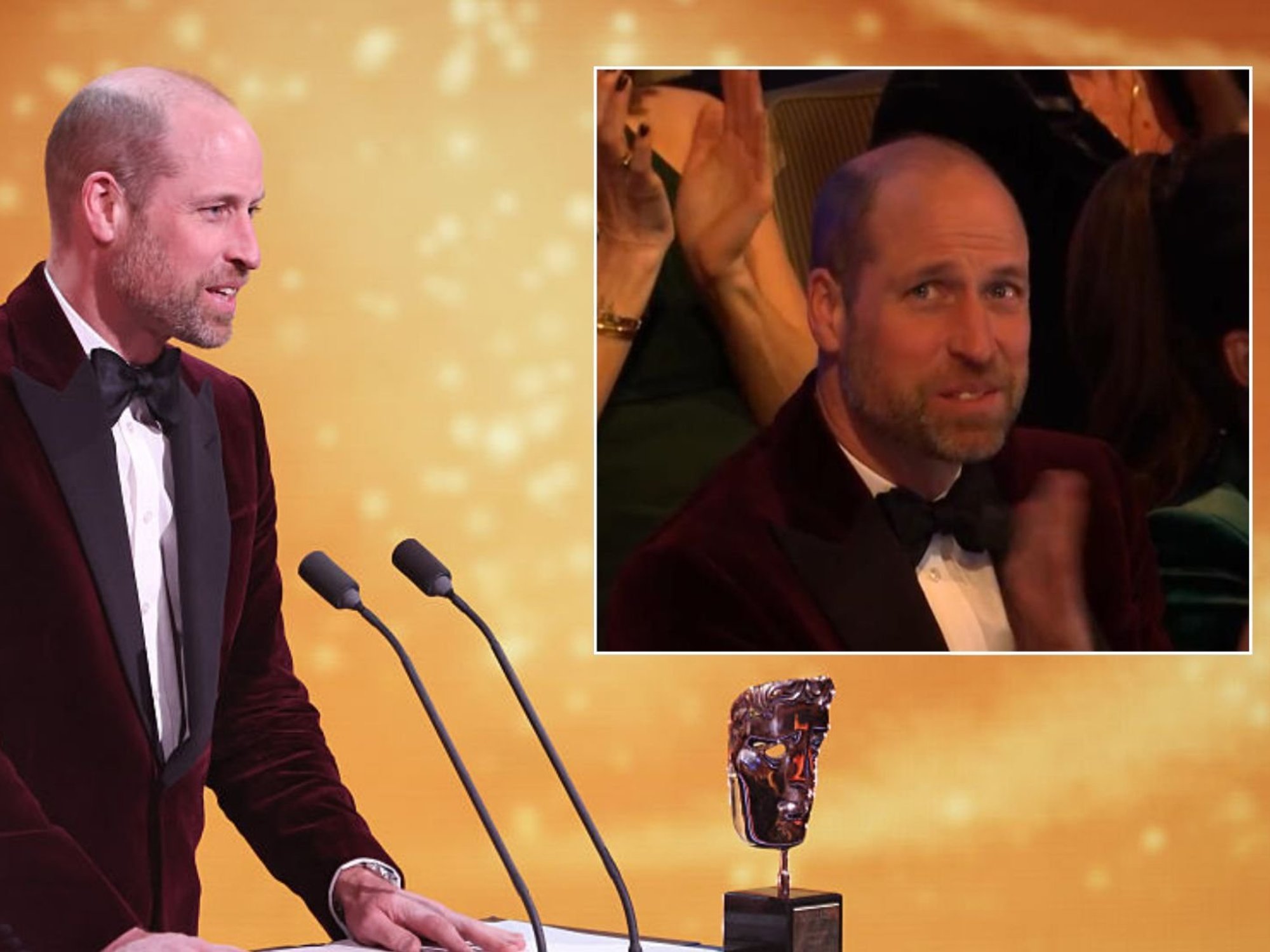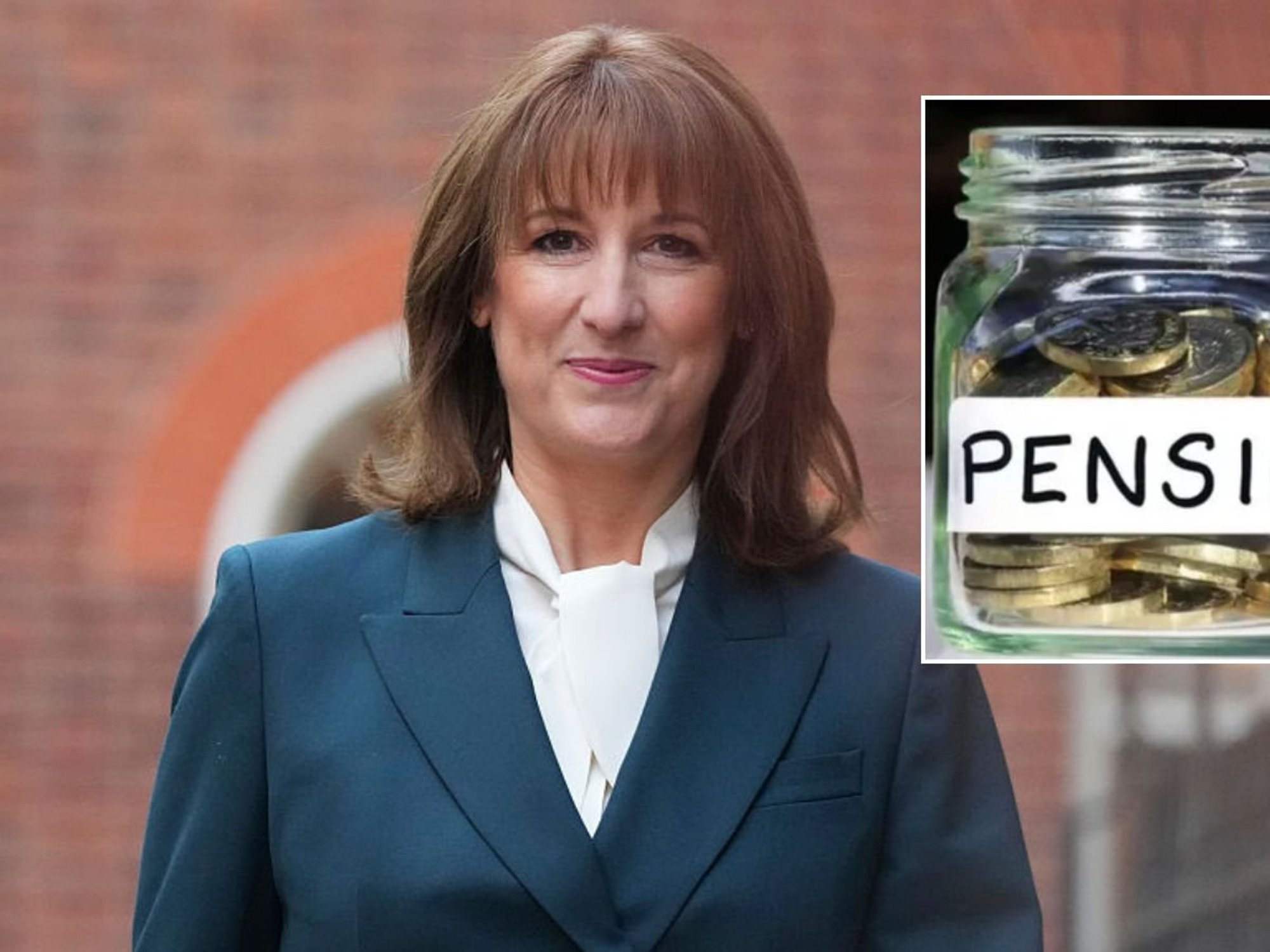Signal promises 'no AI clutter, no surveillance ads' as it slams controversial WhatsApp shake-up

"This s*** is predictable and unacceptable" president of Signal declares
- Signal President Meredith Whittaker has hit out at recent changes to WhatsApp
- Meta is bringing adverts to WhatsApp for the first time
- These will appear in Stories and Channels feature in the popular app
- WhatsApp is used by 1.5 billion people worldwide every day
- Earlier this year, new Meta AI chatbot was added to the messaging service
- This feature cannot be disabled, causing a huge backlash from users
- Despite this, WhatsApp has pledged to add more AI features in future
- Rival Signal has pledged to never add "AI clutter" or "surveillance ads"
- The encrypted service is partly funded by original co-founder of WhatsApp
Don't Miss
Most Read
Latest
Signal, the encrypted messenger funded to the tune of $50 million by the co-creator of WhatsApp, has promised to never introduce Artificial Intelligence (AI) chatbots or adverts into its apps.
It's a clear rebuke of the recent changes at WhatsApp, which has rolled out its Meta AI chatbot service to hundreds of millions worldwide with no way to disable the feature. Earlier this month, WhatsApp announced that it would introduce adverts into its chat app for the first time, breaking a 16-year-old pledge from the original co-founders.
Signal President Meredith Whittaker shared a statement on X, formerly Twitter: "Use Signal. We promise, no AI clutter, no surveillance ads—whatever the rest of the industry does. We lead we don’t follow"
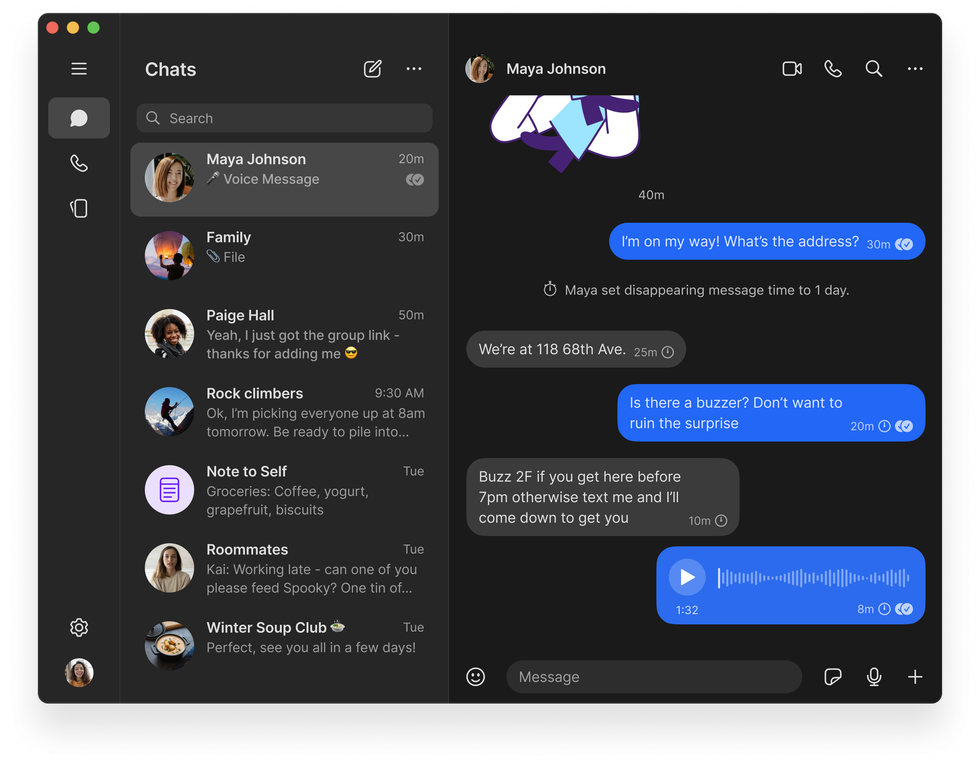
Signal works across a vast number of platforms, including macOS, Windows, Linux, as well as the most popular mobile operating systems like iPhone and Android
|SIGNAL PRESS OFFICE
Brian Action, one of the original co-founders of WhatsApp, left Facebook back in 2017 after expressing deep concerns about the Californian company's approach to user privacy and monetisation. Facebook, which has since been rebranded to Meta, acquired WhatsApp for $19 billion back in 2014.
Management at Meta decided to remove the monthly subscription fee charged by WhatsApp, something Brian Acton and co-founder Jan Koum introduced as a sustainable way to make the company profitable while avoiding the need to introduce advertising or other forms of monetisation, ensuring the privacy of its users.
After walking away from Facebook, Brian Acton donated $50 million to the Signal Foundation, a nonprofit dedicated to developing open-source privacy technology, including the Signal app. He also worked to co-found the Signal Foundation alongside Moxie Marlinspike, the original creator of Signal.
The Signal Foundation serves as the parent organisation for the Signal Messenger app, which is known for its strong privacy protections, end-to-end encryption, and open-source nature. Brian Acton even served as interim CEO of Signal for a period after Moxie Marlinspike stepped down in early 2022.
For those who don't know, Signal is a secure cross-platform messaging app that’s fast-becoming the favourite for privacy-conscious users. At first glance, it feels familiar — much like WhatsApp or iMessage — you can send texts, voice messages, make video calls, create group chats, and share photos, videos and GIFs.
Signal is run by a non-profit foundation and doesn’t show adverts, track its users meta-data, or sell that information to finance its operations worldwide. You can download Signal for free on iPhone, Android, Windows, macOS, and Linux, making it widely accessible. There’s no cost to download it and no subscriptions, premium tiers, or hidden charges.
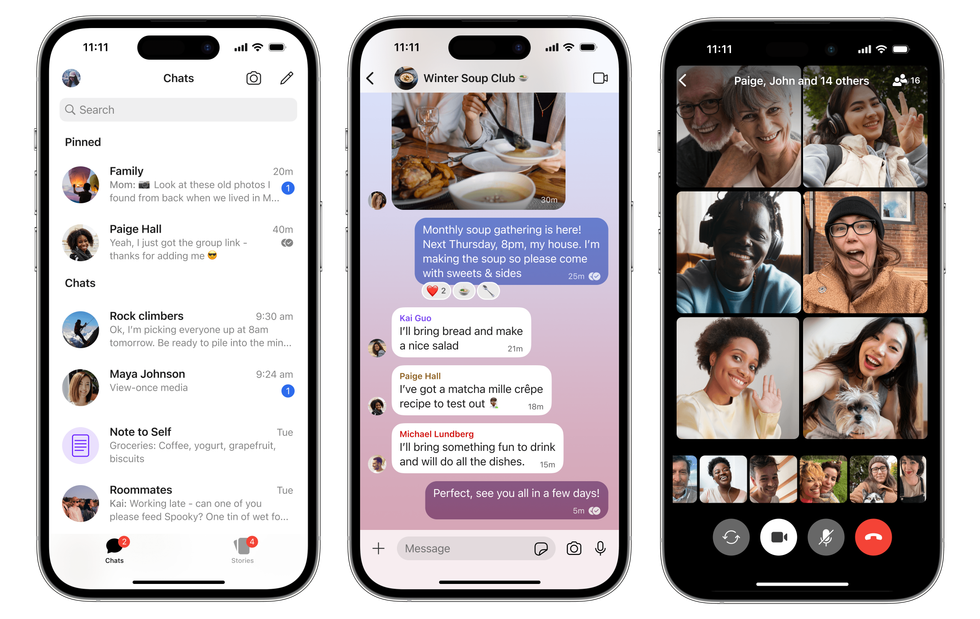
Signal has a clean, modern user interface that'll be immediately familiar to anyone who has used iMessage or WhatsApp before
|SIGNAL PRESS OFFICE
Signal uses its own open-source, end-to-end encryption protocol, which is widely-considered one of the most secure in the world. Everything you send is locked down — not even Signal can read your messages.
Some critics argue that this level of privacy can make it attractive to bad actors, but for most users, it’s about protecting conversations from prying eyes — whether advertisers, corporations, or hackers. For those after WhatsApp-like ease with extra privacy, Signal is a solid pick.
iMessage offers many of the same protections, bringing end-to-end encryption to anything sent within the app, so that nobody other than you and the person you're messaging – not even Apple itself – can read them while they're in transit between devices.
Contact Key Verification is another check introduced by Apple that verifies you're messaging the person you intend to, even against sophisticated attackers who might try to impersonate someone in the conversation.
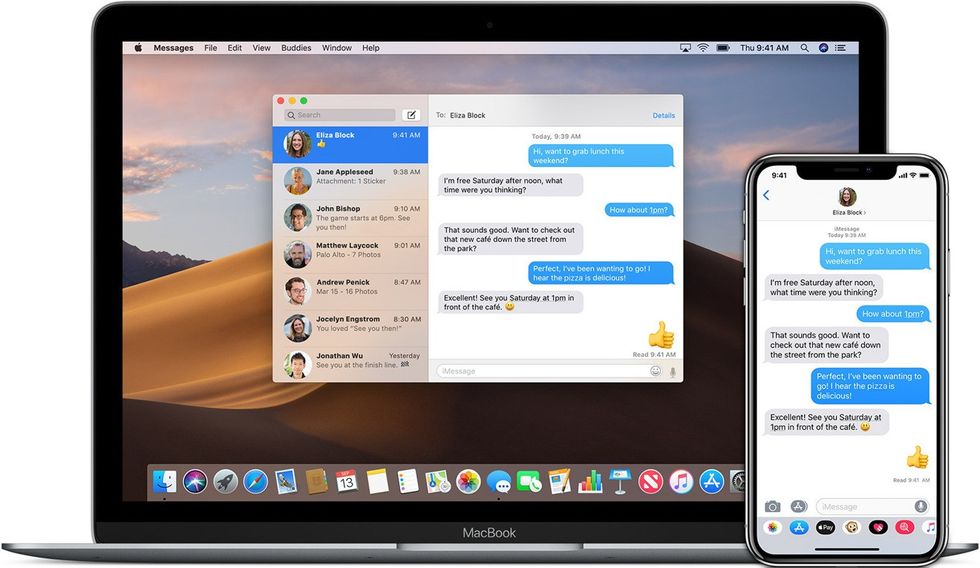
iMessage uses end-to-end encryption, so that even if your text messages, voice notes, photos or videos were intercepted in-transit, they would be indecipherable to anyone expect the intended recipient
|APPLE PRESS OFFICE
The problem? iMessage only works across Apple devices, so you won't be able to keep the same level of protection when creating group chats with people on Android. Likewise, you won't be able to continue the conversation from a Windows or Linux PC... only a Mac.
For the same level of convenience across all of these platforms, you'll need to stick with a third-party service like WhatsApp or Signal.
WhatsApp, comfortably the most popular on the planet with 1.5 billion people using the chat app every day, confirmed that it would be bringing adverts to its app in a blog post late on June 16.
Adverts from businesses will appear in the Status feed, an ephemeral Snapchat Stories-like feature, and will see Channels promoted within your app.
The update means you'll encounter ads after scrolling through Status updates from your contacts, similar to how advertising works on Instagram Stories. You'll also see promoted Channels when browsing the directory, as businesses and creators pay to increase their visibility in your app.
Meta assures you that your personal messages, calls and groups won't be used to determine which advertisements you see. The US company will use limited information — such as the country or city you're based in, language you're using, and Channels you already follow — to serve targeted ads.
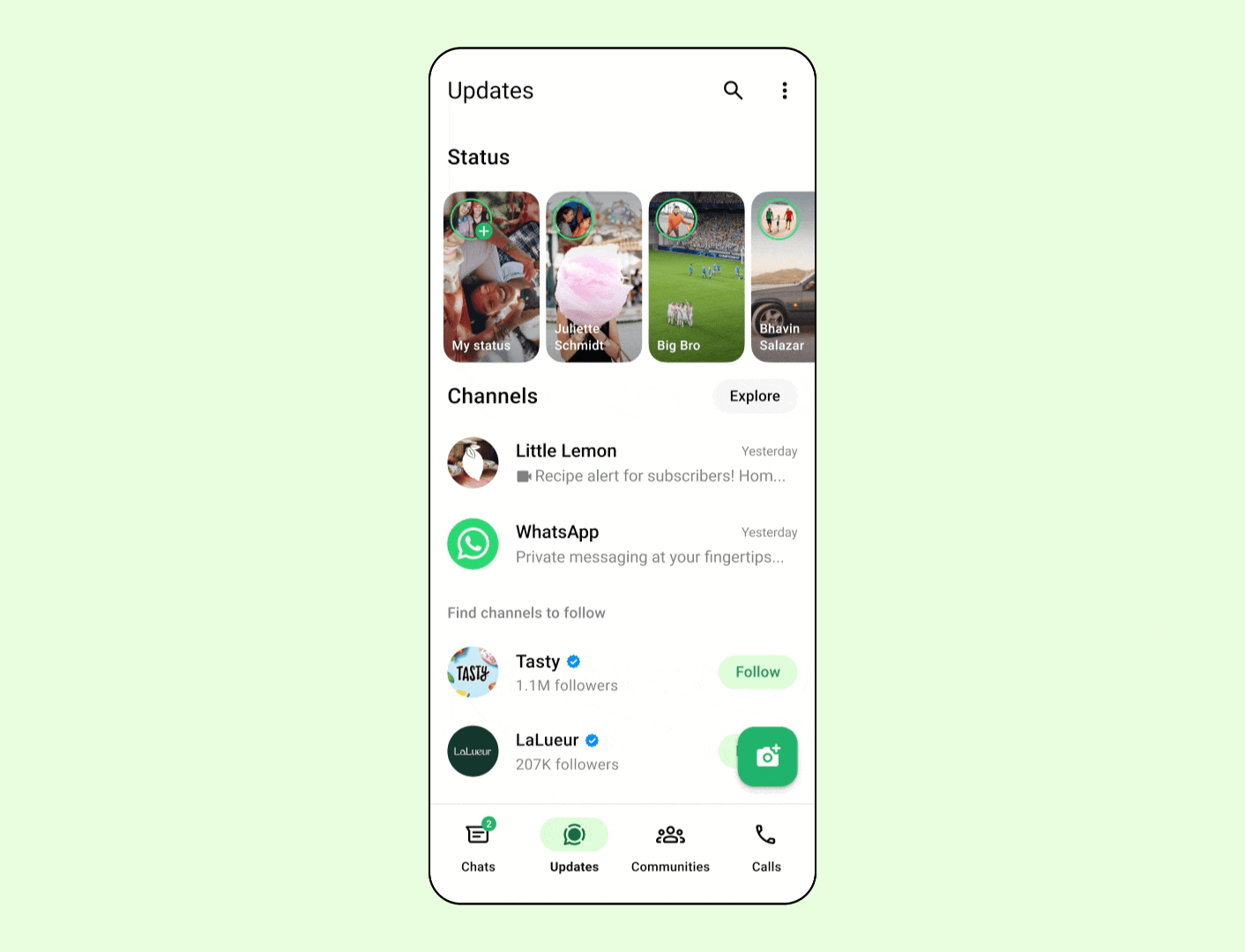 Adverts will allow business and content creators to increase their rankings in the list of Channels available within your app. Ads will also play in between Stories, a feature that's already live in Instagram Stories | WHATSAPP PRESS OFFICE
Adverts will allow business and content creators to increase their rankings in the list of Channels available within your app. Ads will also play in between Stories, a feature that's already live in Instagram Stories | WHATSAPP PRESS OFFICE If you've connected your WhatsApp account to Meta's Account Centre, the company will also use your ad preferences and information from across your Meta accounts. Your phone number won't be sold or shared with advertisers, Meta says.
The messaging platform emphasises that your personal messages, calls and statuses remain end-to-end encrypted. This means nobody, including WhatsApp itself, can see or hear your private communications.
In a blog post about the shake-up, Meta stresses: "We will never sell or share your phone number to advertisers. Your personal messages, calls and groups you are in will not be used to determine the ads you may see."
LATEST DEVELOPMENTS
- Samsung wants to pay you £50 to upgrade your Android phone
- Best VPN deals
- Rival to Roku, Freely, and Samsung adds 20,000 new films and TV shows
- Samsung confirms next major Galaxy Unpacked announcement
- BBC iPlayer is attempting to replicate one of Sky TV's biggest innovations
That isn't the only shake-up coming to WhatsApp. Despite the backlash to its first forray into AI, the encrypted messenger is planning to introduce even more AI features to its immensely popular services.
The chat app recently announced it would explore adding AI-powered writing suggestions and message summaries under a new suite of tools called 'Private Processing'.
These features are expected to be made available in the coming weeks — a decision that's likely to frustrate many WhatsApp users who are already unhappy with the current AI integration.
More From GB News






